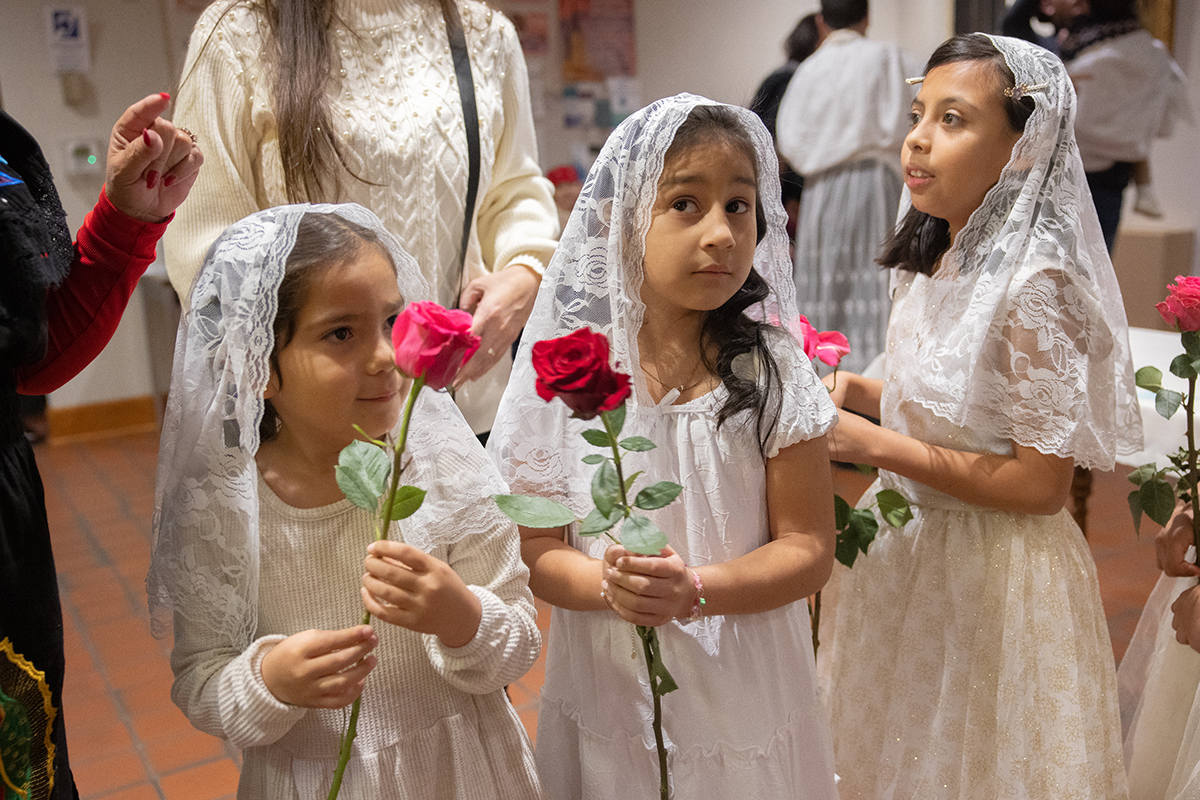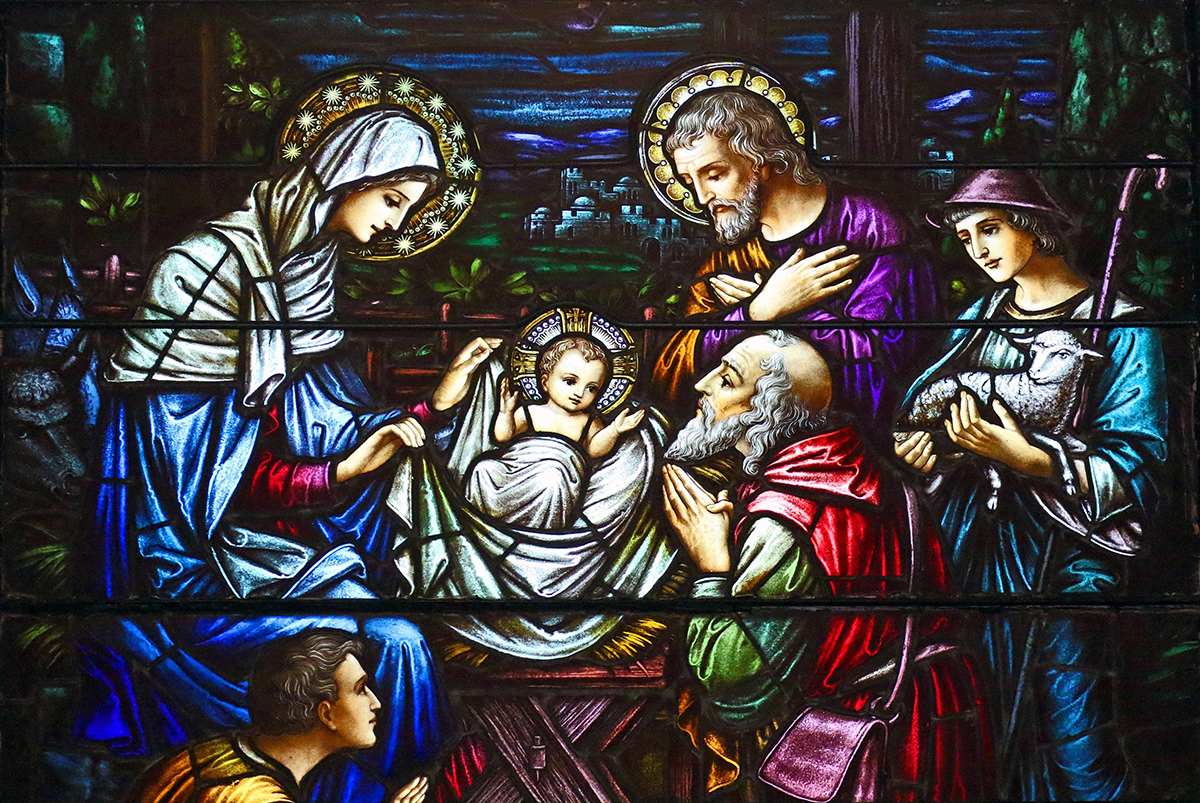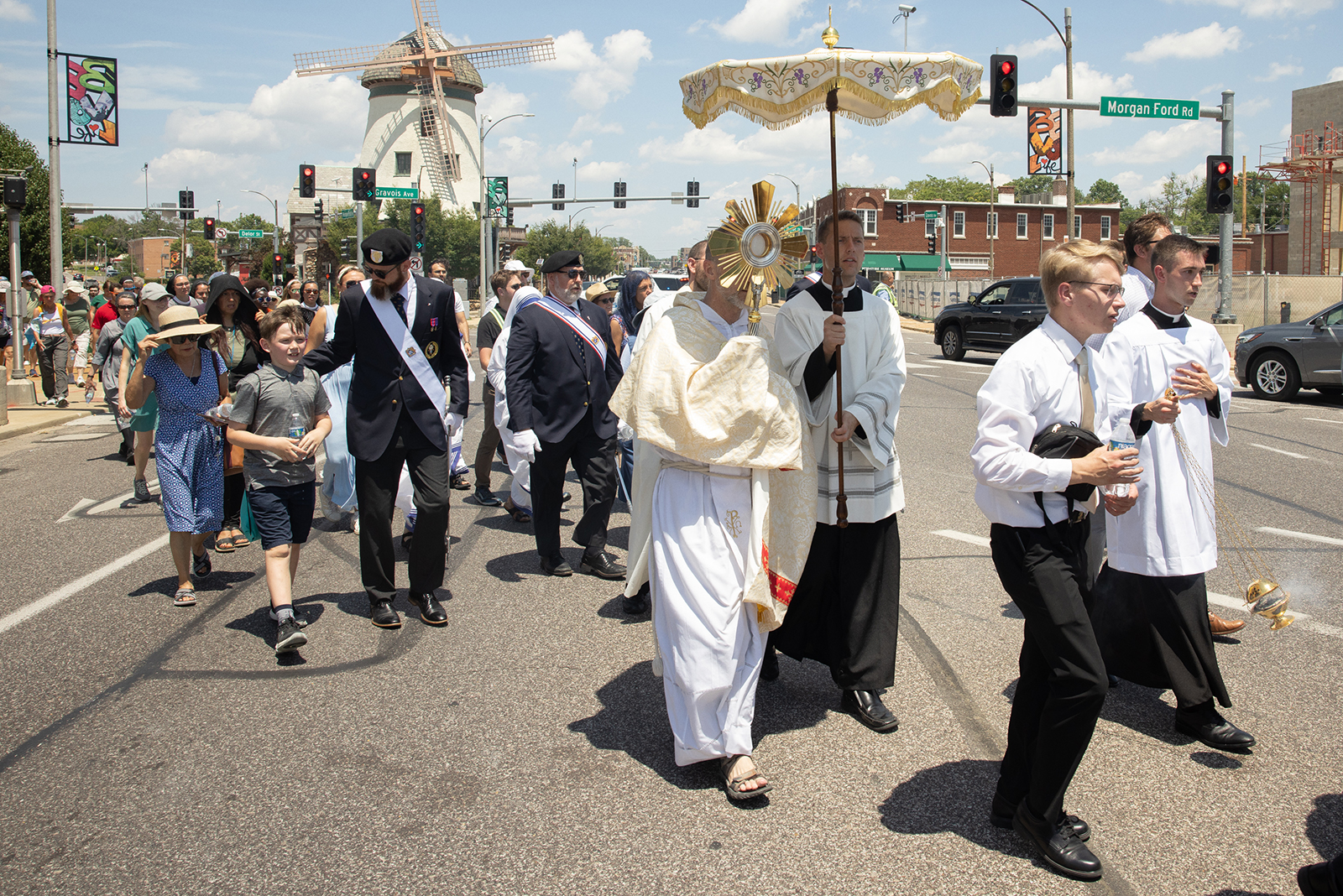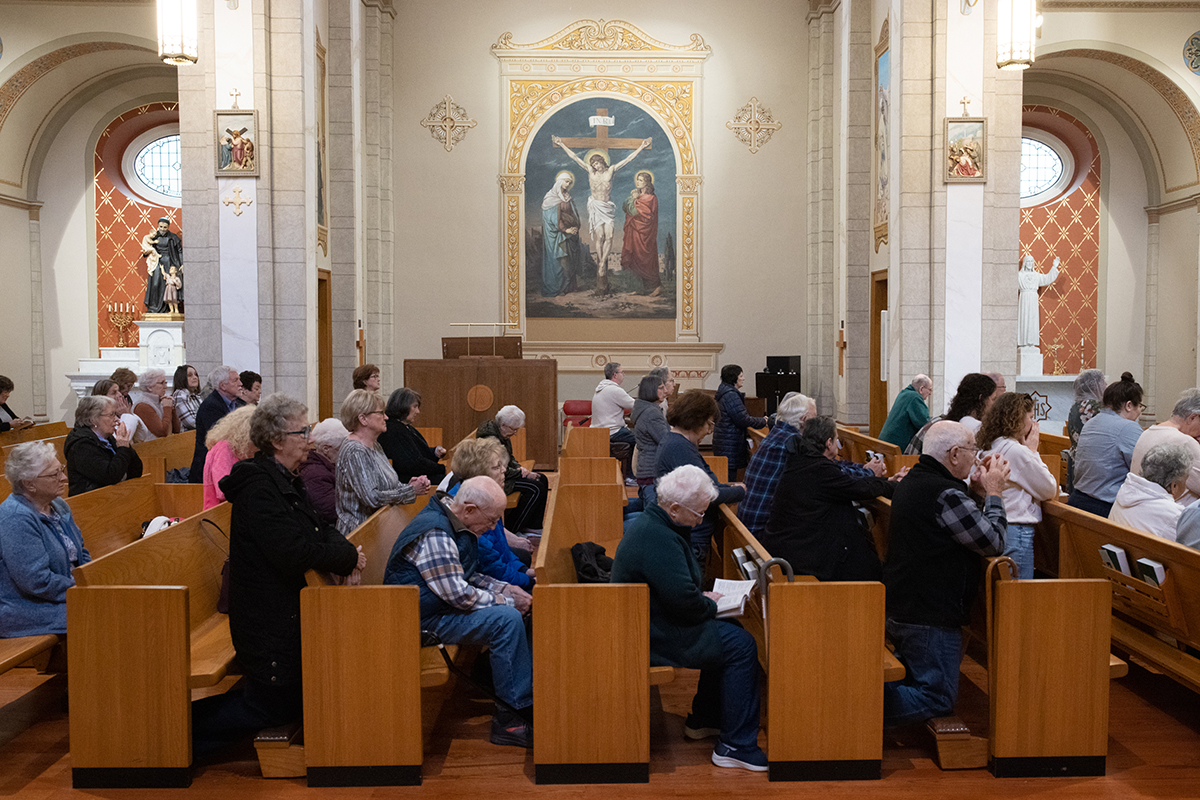Archivists, descendants share experiences with slavery research in the Church at first CROSS conference
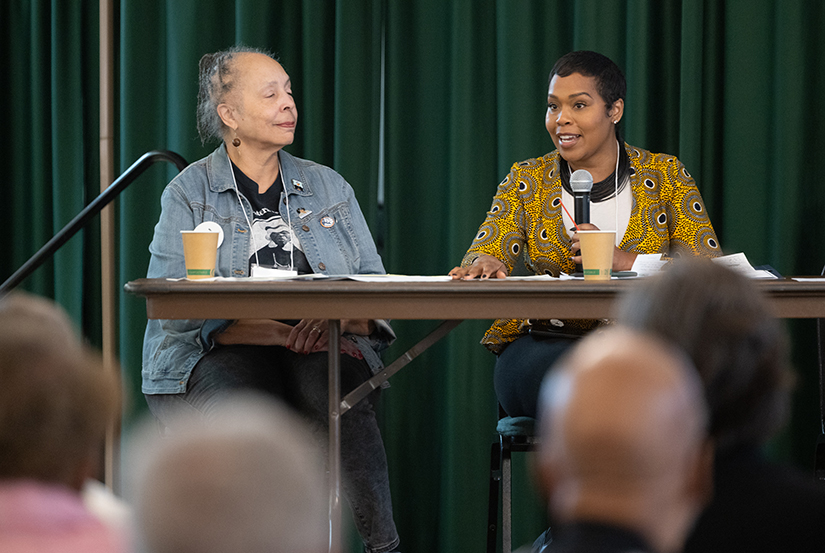
St. Louis archdiocesan team continues to learn more about the people enslaved by local bishops, priests
Rashonda Alexander first learned of her ancestors Jack and Sally Queen after a reporter knocked on her door, believing Alexander was the descendent of people who were enslaved by Jesuit priests.
Alexander got in touch with Kelly Schmidt, then the research coordinator of the Jesuits’ Slavery, History, Memory and Reconciliation Project, who identified Alexander’s grandfather as a descendent of Jack and Sally Queen. The Queens were enslaved by the Jesuits and brought to St. Louis from Maryland in 1829, the year the religious order took responsibility for Saint Louis University (then called St. Louis College) — Alexander’s alma mater.
Previously, Alexander, a parishioner at the new St. Josephine Bakhita Parish in north St. Louis, had been unable to trace her family’s arrival in the St. Louis area. Learning her ancestors’ names and where they came from was especially meaningful to her as a new mother, she said.
“I said, ‘my ancestors heard my cries, asking for my baby, where we came from,’” she said. “I was praising God.”
Now, she wants to know more. “I always wonder, what did they choose (Jack and Sally) for? Was he really good at construction work? Was she a scientist? Was she a mathematician or an architect?” she said. “They had a special set of skills, to make that journey to a whole new frontier in the West. I’m proud of that. I really wish I knew what that was.”
Alexander shared her experiences as a descendant of enslaved persons at the first Catholic Religious Organizations Studying Slavery (CROSS) conference, “Open Wide Our Archives: Truth, Transparency and Access,” held Oct. 30-31 at the Cardinal Rigali Center in Shrewsbury.
CROSS was formed in 2021 to help dioceses and religious orders share resources and ideas as they work to uncover their involvement with the institution of slavery. It started with conversations between the archdiocesan Office of Archives and Records and the Jesuits’ Slavery, History, Memory and Reconciliation Project, among others, working together on overlapping research about enslaved people in the St. Louis area.
“We realized this is such a broad problem in the Catholic Church, that there’s going to be other congregations and dioceses who will be struggling with their own conversations. So we thought this would be a way for us to talk about what we’ve done and be able to share those resources with others,” director of archives Eric Fair said.
Fifteen congregations and dioceses were part of the planning committee for the October conference, and researchers, archivists and diocesan and congregation leaders from across the country attended to share experiences and learn best practices for continued research and outreach to descendants and descendant communities.
Rita Montgomery Hollie, who attends St. Matthew the Apostle Church in the Ville neighborhood of north St. Louis, joined Alexander on a panel and spoke about her experiences on the advisory committee for the Jesuits’ Slavery, History, Memory and Reconciliation Project.
The advisory committee helped develop ways to get the word out in the community, particularly to help identify descendants of people enslaved by the Jesuits and engage them in the work and decision-making going forward. “That really rang true for me as a Black Catholic,” Montgomery Hollie said. “It is especially important for these voices to be respected.”
The Jesuits have now partnered with the GU272 Descendants Association, named for the 272 enslaved people who were sold by Georgetown University and the Maryland Jesuits to plantation owners in southern Louisiana in 1838, to form the Descendants Truth and Reconciliation Foundation. The Jesuits committed to raising $100 million to invest in racial reconciliation, descendants’ education and care for elderly and infirm descendants. In 2024, the foundation anticipates giving $400,000 in college scholarships to descendants of people the order enslaved, said Father Tim Kesicki, SJ, president of the Jesuit Conference of Canada and the United States.

Bishop Joseph Perry, retired auxiliary bishop of the Archdiocese of Chicago and chair of the USCCB’s ad hoc committee against racism, encouraged conference attendees to persevere in their work.
“Opening archives allows Black and Indigenous people to grasp the hand of their ancestors, to meet up with their ancestors while discovering certain names … and claim with honor a profound respect, most of all, for the faith and hope of those who went before us,” he said. Opening archives “enables us to grasp the spirit of the ancestors whose dignity was questioned, but for which we can now apply to them a dignity posthumously.”
Examining the past with an attitude of “authentic confession” gives Catholic institutions the opportunity “to say with tears that we’re sorry for what happened and to forswear that will never happen again under our auspices,” he continued. “Lastly, opening archives, reexamining pasts, allows God to walk amidst us for days ahead in order to see the light of what needs to still be done for us to be agents of reconciliation in the Church and in the wider society.”
Archbishop Shelton Fabre of the Archdiocese of Louisville and past chair of the bishops’ ad hoc committee against racism, reminded attendees that it is important for the Church to share its own stories and face its own sins, no matter how painful, and urged them to stay rooted in prayer.
“I pray that in these efforts, you and all of us together as a Church will continue to truly listen to one another, to those harmed by the ongoing effects of chattel slavery, the slavery of their ancestors and current racism and the call which is placed before us today,” Archbishop Fabre said. “As the Church, as people of faith, may our listening lead us to the very best of our ability to action, action that will foster reconciliation, respect for the human life and human dignity of all, and the peace that Jesus Christ desires be fully established among us.”
Forgive Us Our Trespasses
In 2018, the Archdiocese of St. Louis’ Office of Archives and Records began researching the archdiocese’s involvement in the institution of slavery. The project was formally named “Forgive Us Our Trespasses” in 2021.
Research has discovered that Bishop Louis William Valentine DuBourg, Bishop Joseph Rosati and Archbishop Peter Kenrick, along with an unknown number of clergy, enslaved people. To date, the archives team has compiled a list of 86 names of people who were enslaved.
The project’s current endeavor is delving into the relationship between the Diocese of St. Louis and the Diocese of New Orleans, said director of archives Eric Fair. When Bishop Joseph Rosati was named bishop of St. Louis, he was also apostolic administrator of the New Orleans Diocese.
“While he was there, he was sharing resources back and forth between those two dioceses, and unfortunately some of those were enslaved persons,” Fair said. “So we’re trying to track down how that process worked and who was involved with it.”
The team is also currently researching the extent of slavery under Archbishop Kenrick and working on developing better communications tools to share their findings with different groups of people, Fair said.
The Archdiocese of St. Louis and the Office of Racial Harmony also host an annual “Forgive Us Our Trespasses” Maafa prayer service and procession in June to memorialize the lives of those lost during the Middle Passage, or transatlantic slave trade.
Rashonda Alexander first learned of her ancestors Jack and Sally Queen after a reporter knocked on her door, believing Alexander was the descendent of people who were enslaved by Jesuit … Archivists, descendants share experiences with slavery research in the Church at first CROSS conference
Subscribe to Read All St. Louis Review Stories
All readers receive 5 stories to read free per month. After that, readers will need to be logged in.
If you are currently receive the St. Louis Review at your home or office, please send your name and address (and subscriber id if you know it) to subscriptions@stlouisreview.com to get your login information.
If you are not currently a subscriber to the St. Louis Review, please contact subscriptions@stlouisreview.com for information on how to subscribe.

